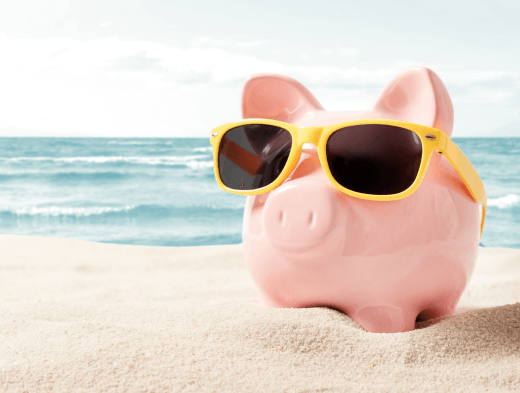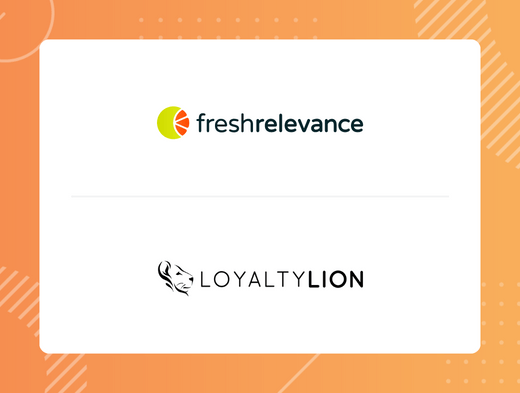With 4 world-class craft breweries and 100 bars around the world, plus exports to over 60 markets, BrewDog continues its domination of the craft beer sector.

David McDowall, President & COO, drives an incredible leadership team to deliver the day to day operations and strategic growth as the business enters its second decade.
We caught up with David to find out how BrewDog has grown their eCommerce and DTC business to epic proportions throughout the pandemic.
Fresh Relevance (FR): You’ve grown and expanded the BrewDog DTC platform and eCommerce business during a difficult year. Did you seek to recreate the pub experience online and if so, how did you achieve this?
David McDowall (DM): BrewDog has always been a multi-channel business, but the mix of channels has evolved drastically over the last 12 months.
We have 105 of our own bars around the world and we also sell a lot of our beer to on-premise bars, pubs and restaurants. In fact, 50% of people’s first experience of BrewDog is at a bar, pub or restaurant!
So when on-premise trade closed down last year, it was a shock to our business. We already had a small eCommerce channel, but it was not a meaningful part of our operation.
Our shift to eCommerce was a necessity but it has also been a massive opportunity. Our eCommerce platform has grown 1400% over the last 12 months, and at first we were just trying to hold onto our hats to keep up with the fresh demand!
The platform has continued to grow at around half that rate into this year, so it’s becoming an integral part of the business.
When we started our eCommerce endeavour, we realised we needed to find a way to stand out from the crowd and a reason for existing online. We re-engineered our shop with the mantra ‘craft beer made easy’, the aim being to make the process of choosing and ordering craft beer online simple. We have achieved this through curating 12 pre-selected bundles and more recently launching a subscription service called BrewDog and Friends, which has been designed to recreate the process of enjoying a diverse range of beers in a pub at home.
Staying connected to the end consumer is important to us, because customers who visit our bars can connect with our wonderful on-premise teams. When the pandemic struck, all of a sudden those meaningful experiences were gone. But we’ve found ways to recreate that connection online.
We launched a virtual pub concept called the BrewDog Open Arms, which enabled our customers to purchase a box of curated beer and join us for a weekly virtual pub session to enjoy a tasting experience. Customers were also able to go on virtual tours of our breweries and learn about the production process of the beers they were drinking.
Our eCommerce business has grown from generating £3 million in 2019 to £100 million in 2020, which indicates that we’ve stumbled on a concept that resonates well with consumers! And it was all driven out of complete necessity. With such a big chunk of our business disappearing overnight, we had to find a way to survive and get our beer directly into consumers’ hands.
FR: Were there any key challenges when shifting online that you overcame?
DM: For the first few months of our eCommerce endeavour we were growing 1400% YOY but trying to build the boat at the same time. Suddenly, we were dealing with thousands of online orders every day and we didn’t have the infrastructure from a systems perspective or from a supply chain and logistics perspective. Simultaneous growth and boat-building is a common theme of the BrewDog journey and we often talk about counting time in dog years, by which we mean if it takes a conventional business seven months to accomplish something, we should aim to execute it in one month.
When it came to those first few months, we had to build a network of third-party logistics providers and we switched our 3PL provider in the UK to a partner that was more significant and could deal with scale. We also had to structure the team accordingly, as well as build up the resilience and depth of our systems and tech stack.
FR: BrewDog is well known for its community of loyal customers. How have you kept customers engaged and encouraged repeat purchases?
DM: Firstly, we are part-owned by almost 200,000 passionate and dedicated investors. We gathered our group of investors in 2009 because we needed to raise funds but over the years we’ve realised it has also been an important community building exercise. Our investors are our most loyal fans, our harshest critics and our biggest ambassadors. So in terms of customer loyalty, being very open and transparent about BrewDog’s journey with that group of core consumers is vital.
Secondly, we realised that during a pandemic people didn’t want to receive marketing messages or advertising from a beer brand because there were more important issues happening in the world. So we utilized our platform, resources and energy in a different way over the summer to have the most positive impact we could on the community. We firmly believe that businesses can and should be a force for good and we really had to demonstrate that belief during the pandemic.
The best example of that is the distillery, which we turned into a low-fi 24/7 hand sanitiser factory, repurposing our furloughed bar team to manage production. It’s not something we knew anything about at first, but it worked. We made half a million bottles, donating them to the NHS, key workers and care homes. Initiatives like this helped customers find a deeper connection with our brand.
Overall I think almost completely stopping our marketing activities and focusing on doing good during the real depth of the pandemic was one of the biggest decisions we made and ultimately I believe it’s helped us connect with more customers and sell more beer.
FR: BrewDog has been making headlines with a series of innovations. Which recent project are you most proud of and why?
DM: I’m most proud of our B Corp certification. It has been a couple of years in the making as the certification process is rigorous, but we truly believe it’s the future of business. In five years’ time the most sustainable businesses are likely to be the most successful, certainly in the sector we operate in. We believe where consumers choose to spend their money is becoming more aligned with their personal values, and in some ways this could be more important than how consumers choose to vote in years ahead.
We’re the world’s first carbon negative brewery and we’re proud to have such a core of sustainability. The B Corp certification was a brilliant recognition of all the hard work the team has put into building a business that has a positive impact.






